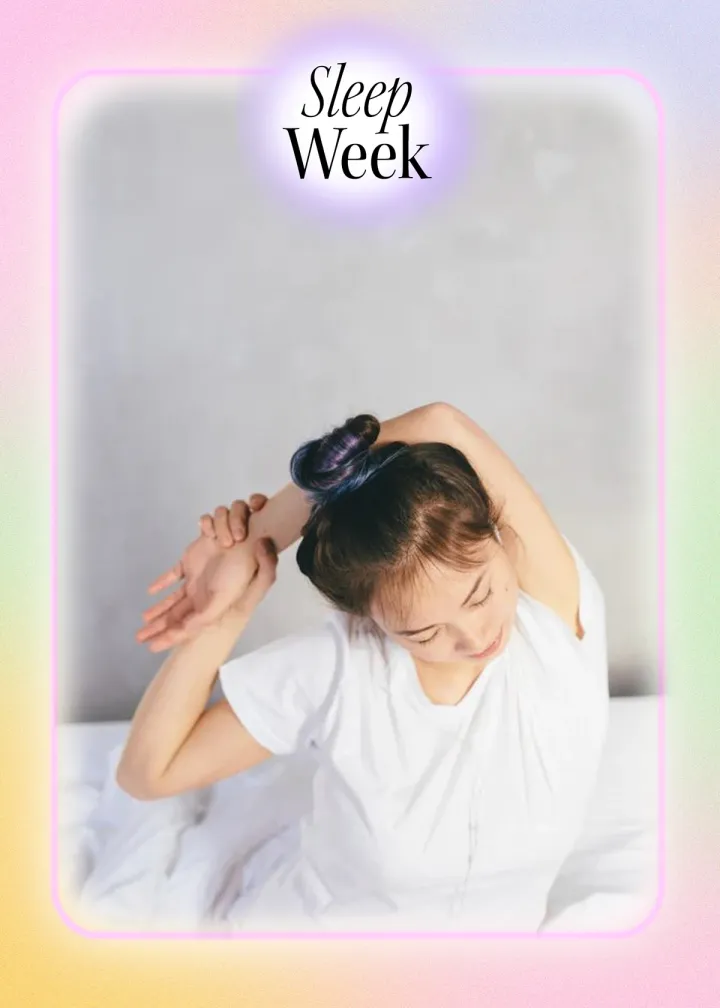
This Is What a Doctor and a Psychologist Do to Ensure They Get a Good Night’s Sleep
From getting enough daytime sunlight exposure to reducing tech usage at night.
The importance of sleep can't be emphasised enough. This essential function helps our bodies physically recover and repair, and helps support learning, memory, and mood. Simply put, without enough sleep, we can't function properly.
As dreamy as it sounds to easily fall asleep and get the perfect amount of snooze time each night, it's certainly not a reality for the vast majority of us. There are a host of reasons we may not get a good night's sleep be it revenge bedtime procrastination, stress, or just a lack of knowledge about what might help us wind down each evening.
We turned to two experts – general practitioner Sam Saling and psychologist Noosha Anzab – to share what they do to improve their sleep hygiene and their professional advice to others who wish to get a better shut-eye.
Specialist General Practitioner Dr Sam Saling
Regarding good sleep hygiene, I always recommend starting with the basics. This includes lifestyle interventions such as getting enough daytime sunlight exposure to reset one’s body clock, ensuring a healthy diet with adequate protein before bedtime to ensure fullness during sleep, adequate exercise to ensure the body is meeting its physical needs, and limiting screen time and blue light exposure in the lead up to bedtime. I do all of these, but my golden rule is reading a novel before bedtime – I have trained my brain to see this as a sleep trigger and a couple of pages in does the trick every time. However, the temptation to scroll on my phone is sometimes too great, and occasionally I ignore my own rules – I definitely experience poorer sleep when I do this!
For my patients, if these simple measures don’t work, I move on to more targeted behavioural interventions, which as a GP I can advise on and monitor. I also screen for contributing conditions like sleep apnoea, iron deficiency anaemia, and many other pathologies that can affect sleep.
Next, I consider referring patients to clinicians like a clinical psychologist or a sub-specialist sleep psychologist if there is an underlying mental health disorder causing sleep problems. Sometimes, I also prescribe certain medications to patients with moderate mental health symptoms involving sleep, and these can work wonders. In difficult cases, I consider sending my patients for a sleep study under the supervision of a specialist sleep physician.
Noosha Anzab, Psychologist and Clinical Psychotherapist
I’m one of those people whose body really struggles with inadequate sleep and once my body crashes, my mind surely follows too. I ensure sleep is ALWAYS my priority and am not afraid to put my hand up and acknowledge I need a nap, a sleep-in or just some non-sleep deep rest. There is a tonne that I do to protect my sleep and aid my rest and recuperation.
I start my day at about 6 am and open all blinds and windows, pop outside and gage the day as I walk outside or practice mindfulness on my balcony. I delay my coffee so I have it about 2 hours after waking and never have more than two shots of caffeine a day, with my last coffee never being later than 2 pm. This means I don’t get caffeine through anything else like teas for example and I don’t consume sugar – or at least try very hard not to.
I ensure I get a minimum of 30-60 mins of outside time every single day where I sit and reflect and drop my anchor and I prioritise exposure to sunlight again in the afternoon when it is low in the sky. I have to do this because I do so much screen time so I need to minimise the negative effects of that constant screen exposure.
After 8:30 pm I reduce my tech use to almost nil and every night like clockwork, I have the same sleep routine: Hot shower (as hot as I can tolerate) 1-3 mins cold water exposure, and finish on hot water again, pjs, and bed with a book or I listen to a soundscape (I love rainfall). From 8:30 pm on, there is minimal light in my room or household in general – we aim to not disrupt melatonin production here and everything is either off or as dim as possible, including brightness on phones.
I make sure I exercise and go for a walk wherever I can. I walk to the grocery store instead of driving, I walk to the coffee shop, I walk the longest way through shopping centres, I park extra far away to walk more, and generally, I just walk, walk walk! It sounds like a lot, but I have to honour my vessel so I can keep my captain a.k.a my mind at her best and most of that is based on ensuring my sleep is uninterrupted and of quality too, and doing all the things they set my sleep up for success like routine, sleep hygiene, and exercise.
The takeaway
Both Sam and Noosha use similar tactics to ensure they get a good night's sleep. They both: spend time outside during the day, exercise regularly, have established a bedtime routine that triggers their sleep response, and minimise screen time in the evenings. by incorporating these activities into their schedules they are able to feel better rested and able to perform during the day.
This article is intended for informational purposes only and is not a substitute for individualised health advice. If you are concerned about your health and well-being, please speak to your GP, who will advise on the correct treatment plan. You can also call Samaritans 24/7 for mental health support on 116 123.
For more follow Dr Sam Saling @drsamsaling and Noosha Anzab @nooshaanzab
Enjoyed This?
Discover more sleep-related content.






